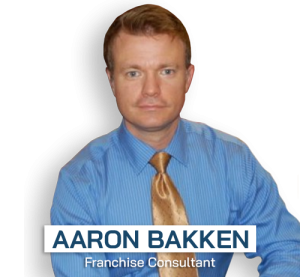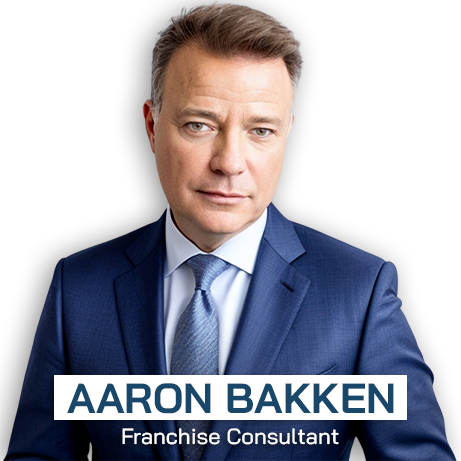 In a franchise, one business (called the franchisee) pays another (the franchisor) to use the franchisor’s business model and trademarks. The franchisor offers various kinds of assistance to the franchisee, such as training, support services, and advertising. You are the boss in a franchise, but the franchisor provides you with a ready-made template for your new business to follow. Using that template simplifies the process of starting and growing a business. Expansion is expensive and time-consuming. By franchising your company, you can reach new locations without having to completely manage the new operation. As a business owner, you may want to open other locations to reach a broader audience. By franchising, you can help countless new customers while you build your brand from a distance.
In a franchise, one business (called the franchisee) pays another (the franchisor) to use the franchisor’s business model and trademarks. The franchisor offers various kinds of assistance to the franchisee, such as training, support services, and advertising. You are the boss in a franchise, but the franchisor provides you with a ready-made template for your new business to follow. Using that template simplifies the process of starting and growing a business. Expansion is expensive and time-consuming. By franchising your company, you can reach new locations without having to completely manage the new operation. As a business owner, you may want to open other locations to reach a broader audience. By franchising, you can help countless new customers while you build your brand from a distance.
Determining If Franchising Is Right For Your Business
Do your homework. Start your research by targeting your customers and locations. The first step is to learn the specifics of a franchise agreement, franchise disclosure document, and franchise fees. You need to fully understand the franchise business model. Franchising is a time commitment process it takes effort, in addition, to the cost to properly do it. Understanding and setting the franchise fees are crucial to developing your brand. Your fee must be competitive with other brands in the same industry and category. Qualified franchisees will be comparing brands and the fees can be a meaningful part of the total cost. The average franchise fee ranges from $25,000 to $50,000 per unit. Before choosing a franchisee there are certain documents and agreements you will need to have in place. These include the franchise agreement and franchise disclosure document.
Franchise Agreement
A franchise agreement is a legal, binding contract between a franchisor and franchisee. In the United States, franchise agreements are enforced at the State level. Prior to a franchisee signing a contract, the US Federal Trade Commission regulates information disclosures under the authority of The Franchise Rule. the franchise agreement exists so you and your franchisee are on the same page. To maintain a brand, all of your franchisees must be signing the same agreement.
Franchise Disclosure Document
The Franchise Disclosure Document (FDD) is a critical document that provides the franchisor’s details, including legal history, company structure, financial status and agreements, existing franchisees, Financial statements: A franchisor must provide three years of financial statements to the franchisee as part of the FDD. This includes balance sheets, statements of operations, owner’s equity, and cash flows. The U.S. Franchise Rule requires that franchisors provide to prospective franchises the presale disclosure document (“FDD”) to prospective franchisees so that they can make an informed decision prior to entering into a franchise relationship. Do not get tempted to start franchising without having your legal responsibilities in order. This part of franchising can be expensive but potential liabilities can be even more expensive if your process in not in proper compliance.
The Benefits of Franchising Your Business
Most small to mid-sized businesses don’t have the money to open up 1 or 2 more locations with their own capital, let alone open up hundreds. Franchising provides necessary cash flow for quicker expansion. Franchising provides you with vested owner-operators to run the business who invest their own money into your franchise. Time is one thing we can’t buy. Franchising gives you the ability to capture market share incredibly fast! The growth helps spread your brand to new corners of the country helping you to build a reputation and recognition. Increased brand recognition is increased revenue.
How Do You Train a Franchisee?
When a prospective franchisee joins your company, you want to ensure they are well trained for your brand and mission. One way to do that is by training each new franchisee and their employees to follow the guideline you have set.
- Operations Manual – The operations manual is the rule book for a franchise system.
- On-site Training – Training that is carried out at the new franchise location.
- Continuous Training – Webinars, on-site visits, conferences, and more.
- Assessments – Yearly meetings give a chance to discuss what is working and not working.
How Long Will The Entire Process of Franchising Will Take?
Franchising involves many steps — and a lot of time and effort. But, if you’re organized, and you’ve taken the time to learn all you can about franchising, you’ll be able to speed up the process. Some experts estimate it could take from 3 to 4 months to complete the process. When you franchise a business, your want to make sure you do it the right way the first time, or you could end up with problems for years to come.
Contact Aaron (608-576-4592) for a Free Consultation!
—
 About Aaron Bakken
About Aaron Bakken
Franchise Consultant for The Franchise Consulting Company
Proven Experience
Aaron has 20+ years of franchise and independent business ownership experience. He also spent 5 years as the VP of Franchise Development for an international franchise group, growing the franchise to the advent of a private equity buyout. Whether you are looking to buy a franchise opportunity or franchise your business, Aaron knows how to guide you.
No Cost To You
Aaron is paid by franchisors and development companies for bringing them viable franchise investors. So frankly, his clients have nothing to lose by engaging with him but a bit of their time. Aaron helps his clients navigate the complex world of franchise ownership and development, and provides long term guidance to help his clients achieve their entrepreneurship goals.
